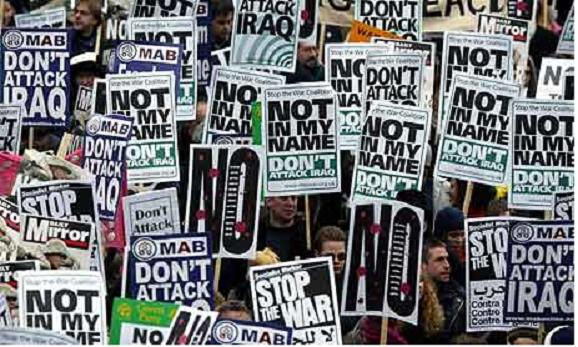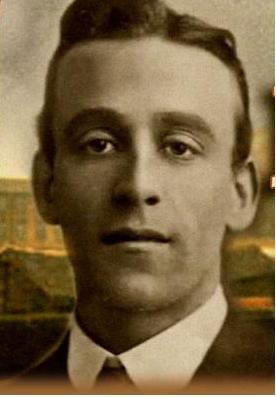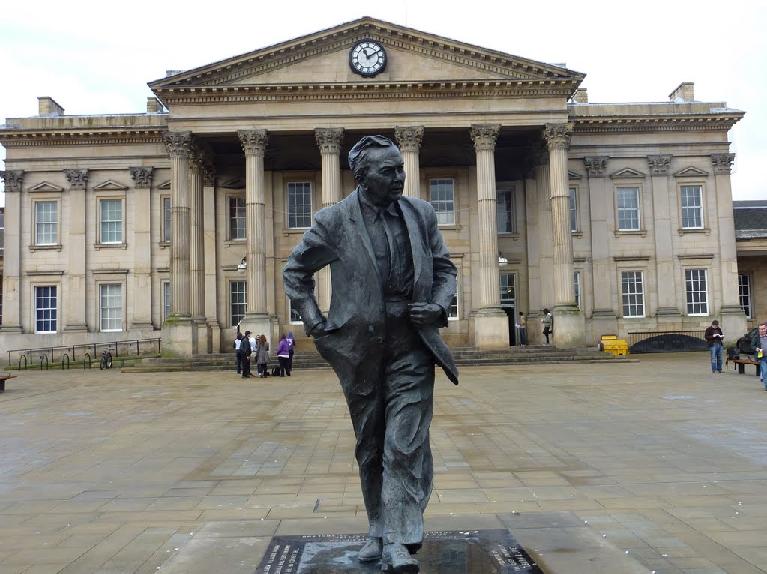
Huddersfield: A Century of Pacifism – student soundwalk

My name is Jack Yard and I am a second year History undergraduate studying the ‘Hands on History’ module, led by Dr Janette Martin, at the University of Huddersfield. For our second project of the module we were set the task of producing an audio walk presenting an area of Huddersfield’s history to the public. The project required us to carry out research through both archival research and oral history, and then assemble the twenty minute audio walk on editing software.
Our group decided on the topic of pacifism in Huddersfield and named the walk Huddersfield: A Century of Pacifism. The walk takes the public through the history of Huddersfield’s conscientious objectors during World War One, Harold Wilson’s reluctance to commit British troops to Vietnam and into the twenty-first century focusing on the 2003 Iraq protests and 2014 nuclear budget protests. This takes the listener to four locations in Huddersfield: the Town Hall, the railway station, St. George’s Square and Market Cross.
Starting at the Town Hall the listener hears about the history of Arthur Gardiner, a prominent Huddersfield conscientious objector and local socialist. His, and many other CO’s, refusal to be drafted into the army during WWI sowed the seeds for pacifismin Huddersfield for the rest of the century. Listeners learn of the fate of Gardiner at his tribunal in the spring of 1916 and of the masses who turned up to support him. The listener is asked to make their way to the railway station following the steps which Gardiner himself took as he was escorted to Wakefield prison. Integrated into this segment are excerpts of an oral interview we conducted with Cyril Pearce, an expert on Huddersfield’s conscientious objectors.

Our next area of study was the actions of Huddersfield-born Prime Minister Harold Wilson during the Vietnam War. Wilson acted as a mediator by instigating proposals for a Commonwealth peace mission and attempting to setup peace talks between the USA and USSR. Furthermore, Wilson was successful in resisting pressure from US president Lyndon Johnson to commit British troops to Vietnam while maintaining the Anglo-American relationship. In effort of engaging with the listener we included a re-enactment of a Harold Wilson speech.

The walk ends at Market Cross as we explore the pacifistic actions of groups of the Huddersfield community over the past decade. We focus on the Huddersfield branch of the Stop the War Coalition and their participation in anti-Iraq war protests in Huddersfield and London; listeners hear the experiences of Mike Forster, a member of the coalition at the time.
Our intentions were to produce both an engaging and educational piece for our audience. We chose a topic which has gained a lot of attention amongst local history societies – Huddersfield’s conscientious objectors – and shed light on where pacifism has reoccurred amongst local people over the century. Our aim was not to create a piece which would provide an extensive and detailed account of a particular event of Huddersfield’s history, but rather introduce the audience to several events in a thematic way. We hoped this would encourage listeners to engage themselves in further reading of the topic and engage in Huddersfield’s rich history.
In effort of making it an entertaining piece we paid much attention to our choice of music, sound effects and narration. Much thought was put into choice of narrator and the tone in which our narrator spoke. Our final edit used a Yorkshire accent which we believed was suitable for a Yorkshire history. We were also concerned about the length of narration, it was important to keep the listener engaged and a prolonged segment of narration would infringe upon this; thus, we broke up the narration with music. We made use of popular culture to appeal to the listener by including short excerpts of music hits: Edwin Starr’s War and The Beatles’ All You Need Is Love.
As a group we found this project an interesting alternative to approaching history, rather than through essay writing. It allowed us to combine archival research, oral history and technology to approach history creatively.
Jack Yard
History at Huddersfield uses research-led teaching and a commitment to public engagement to ensure that what we do is both useful to society and beneficial to the employability of our students. We see our students as researchers – partners in the development of knowledge with academic staff, often through co-production of knowledge with community partners. For more information see http://www.hud.ac.uk/courses/full-time/undergraduate/history-ba-hons/ and http://www.hud.ac.uk/research/history/
You can email us at historyadmissions@hud.ac.uk